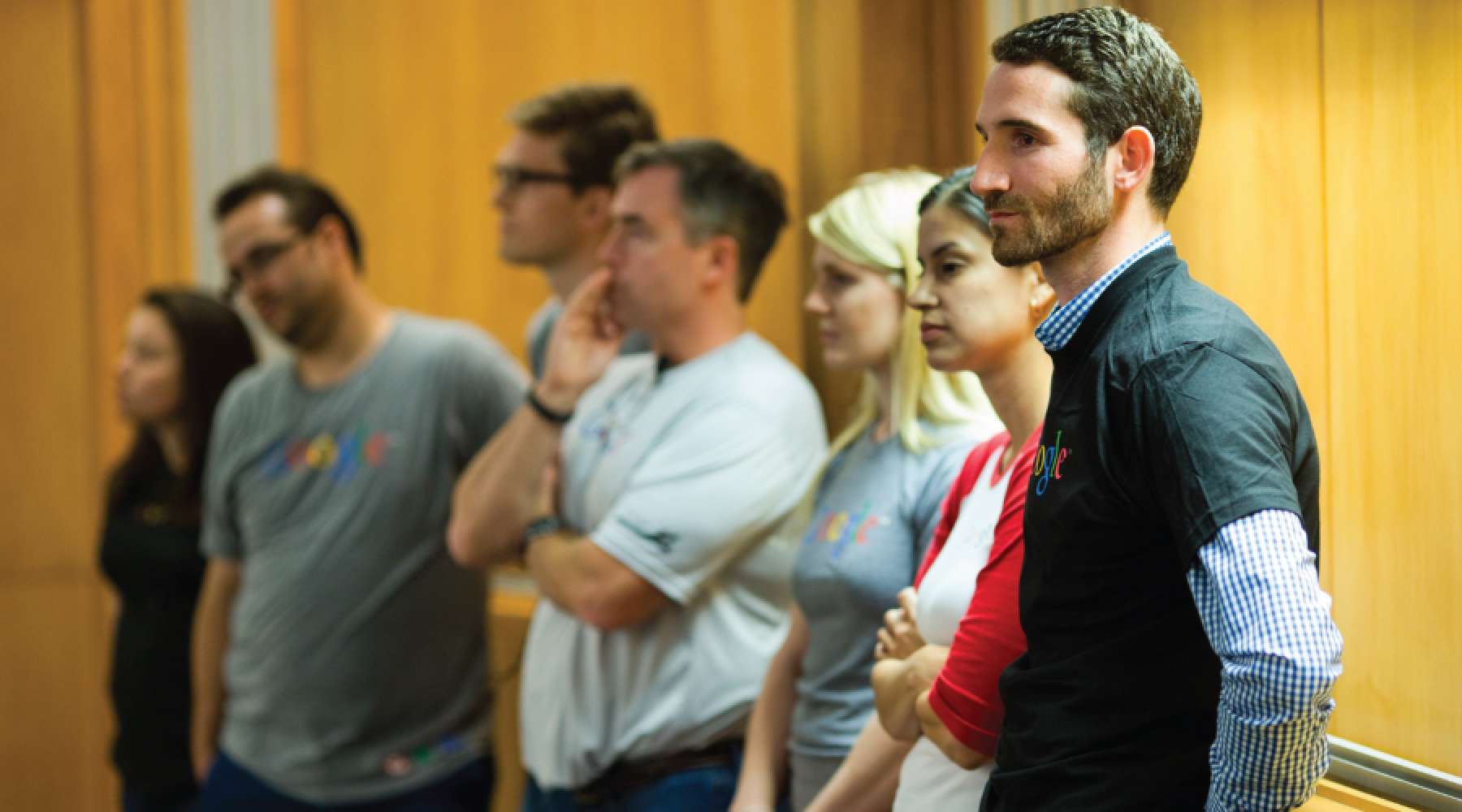
 Mathias Machado T’09 is an associate director of Tuck's Career Development Office.
Mathias Machado T’09 is an associate director of Tuck's Career Development Office.
One of the things about tech to keep in mind is that it’s not the same as consulting or investment banking where it’s about one role. Tech companies are so different—not just culturally, but also from a role perspective—and tech has so many niches.
The questions you can expect really depend on the role, but in general you should remember that each company will be looking for different things and it’s important to figure that out. For example, Amazon has 14 leadership principles and they make sure when they ask behavioral questions that they look for them in candidates. Google looks for four attributes in any interview: cognitive ability, leadership or emerging leadership, culture fit (“Googliness”), and role-related knowledge. (That last one is the least important unless it’s for very specific roles.)
The best way to prepare for an interview in tech, besides knowing your story and prepping for the generic behavioral questions, is have an understanding of what’s going on in the industry. You can’t just pick up the newspaper today if you have an interview tomorrow. You really have to look over a period of six months and follow stories. For example, if today Google is acquiring a company, there’s a reason behind it you should know, whether it’s a strategic move to be more competitive in a certain space or to prevent another company from buying it. The only way to know these things is to continuously follow the news.
You can do that however you prefer: listening to podcasts, following Twitter, or reading blogs and publications. Besides knowing the news, you need to also form opinions, which takes time. An interviewer can tell in five minutes whether or not you’re truly passionate and informed about tech.
It’s difficult to know because it depends on what role you’re interviewing for. If you’re going for a product-related role, they might ask you to tell them your favorite product and why as well as what would you change about it and why. You need to be able to dig deep. I’m just making this example up, but let’s say they ask you to pretend that you’re the product manager for Amazon Prime, which hasn’t been released yet and you have to price it. How much would it be and why? There’s no right answer, but an interviewer will be interested to analyze your thought processes.
Again, there are no “typical” interviews. Amazon, Google, and Microsoft are the three biggest recruiters at Tuck in terms of numbers. Amazon would do first and final rounds in the same week here at Tuck. You would have two interviews with one interviewer each in the first round and two in the second round. For Google, you would have one or two phone interviews then they would fly you out to Mountain View. For some Microsoft roles, like marketing, you would interview here, but for others you would do a phone interview before they fly you out to Seattle.
Most interviews will include a mini case—not as full-fledged as a consulting case—just for reasoning ability. I always tell students to practice consulting cases, even if they’re not going to do consulting because it’s always helpful.
Google used to do brainteasers but now they’re more geared towards reasoning through business problems. One sample case question could be if you were to put a vending machine on an airplane, where it would go, what you would sell, how you would manage inventory, how much you would charge, etc. Your first reaction might be to think about a vending machine selling cans of soda, but if you think differently, you could have earplugs or phone chargers or books. Getting into these kinds of questions tells an interviewer a lot about you and how you think.
It depends by company. My experience tells me that for Google, for example, prior experience is important, but it’s less so at Amazon and Microsoft. With Google, if you’ve done marketing before, you’ll probably get a marketing interview, for example. You will be able to move laterally or between functions once you join the company.
Tech is not networking heavy like banking or consulting. It’s always important, however, because it can give you the idea of what makes a marketing role at Microsoft different from one at Amazon. It’s not that companies put emphasis on networking, but it’s important for a student to network to get the right information to then do well in the interview.
Connect with alumni, understand what to expect in an interview, and know the news and the company. Formulate your value position: where do you see yourself fitting in the company and what things would you would like to work on?
The nice thing about the tech industry is that it’s very public. There’s a lot of things written about the tech industry from news to opinion pieces.